Nikon D750, Sigma 35mm ƒ/1.4 DG Art, ISO 100, ƒ/1.4, 1/2000
I was at an event lately, and another photographer noticed my lens. The first thing he asked was how the BOKEH was on that lens.
I just wanted to see the BOKEH on three of my lenses. I am showing you the 1) Sigma 35mm ƒ/1.4 DG Art, 2) Nikon 85mm ƒ/1.8G, and 3) Sigma 24-105mm f/4 DG OS HSM Art Lens to compare the BOKEH.
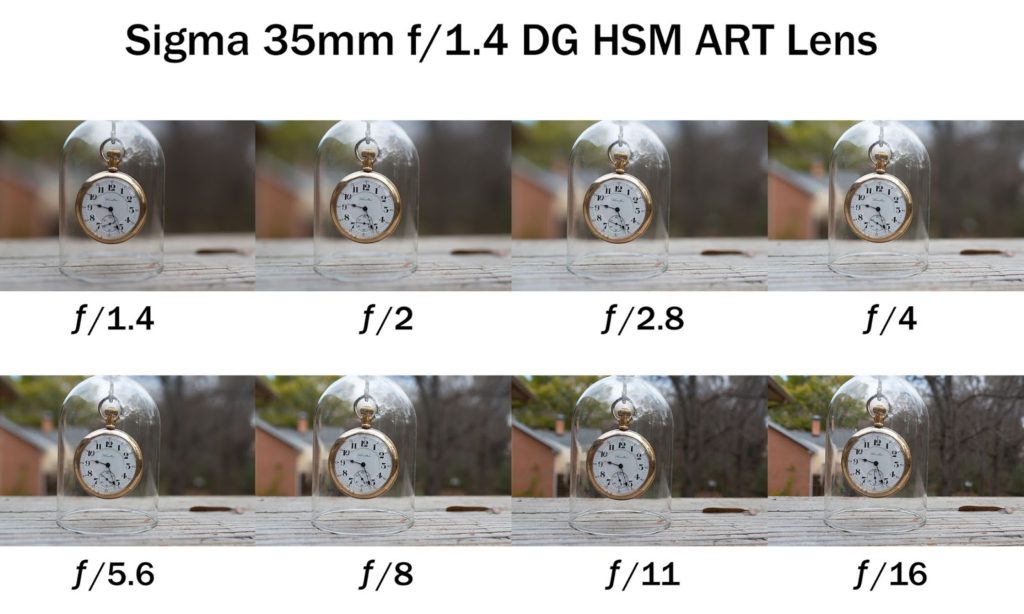
So this is the closest I could focus the Sigma 35mm, and then I just shot it at each aperture so you could see what the BOKEH looks like at each aperture setting.

This is the Nikon 85mm ƒ/1.8G lens, and as you can see, I cannot get as close to the pocket watch as I could with the Sigma 35mm. This is very important in how an object looks with a lens. If your subject is tiny and you are trying to fill the frame, you can see that some lenses with great BOKEH create a problem because now you must crop the image to load the frame with the subject.
Look at how the aperture affects the BOKEH with the Nikon 85mm ƒ/1.8G lens.
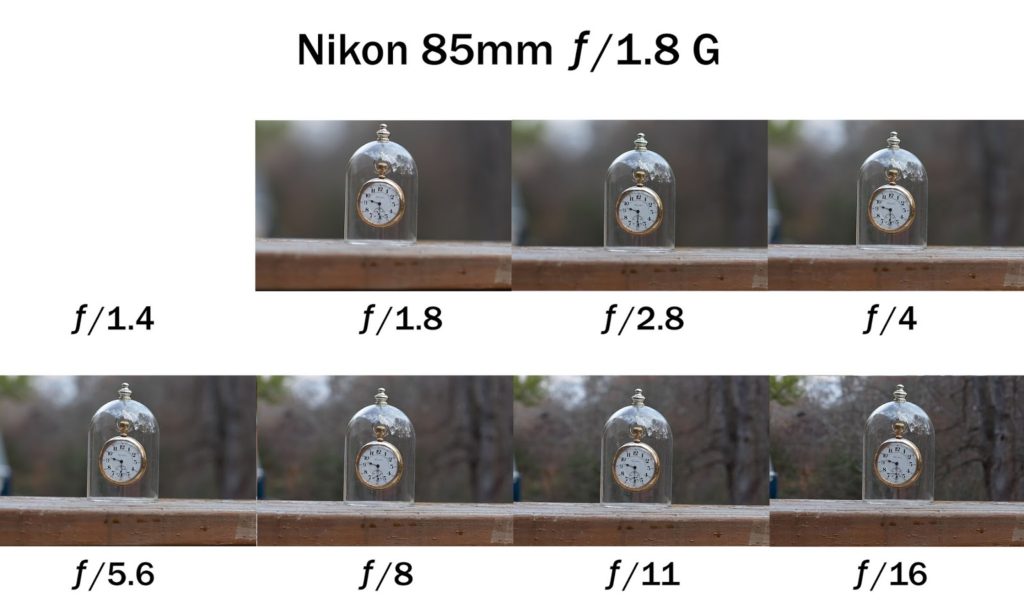
You can already tell you are getting less width of the background than the 35mm.
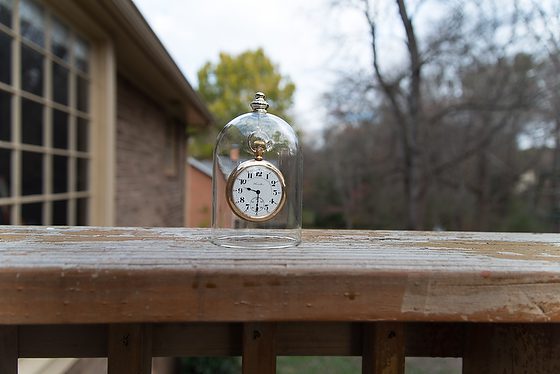
I am focusing on the Sigma 24-105mm f/4 DG OS HSM Art Lens as closely as possible. I am shooting a wide-open aperture of ƒ/4. The shallow depth-of-field isn’t there like with the 35mm or 85mm prime lenses.
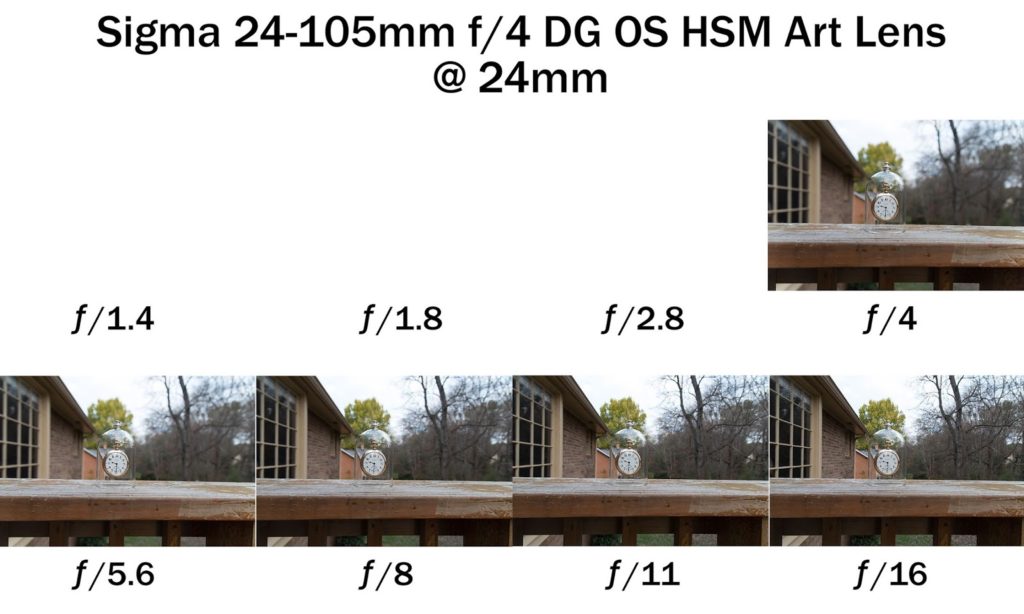
The aperture does not have a massive difference since starting 4 ƒ-stops less than with an ƒ/1.4 lens.
Another thing is the closest focusing distance with the Sigma 24-105mm f/4 DG OS HSM Art Lens is 17.7″.
Closest Focusing Distance for the lenses
- 11.81″ – Sigma 35mm ƒ/1.4 DG Art
- 17.70″ – Sigma 24-105mm f/4 DG OS HSM Art Lens
- 2.62′ – Nikon 85mm ƒ/1.8G
The 85mm is measured in feet versus inches with the other lenses. However, when you are shooting primarily headshots, that is a reasonable distance.
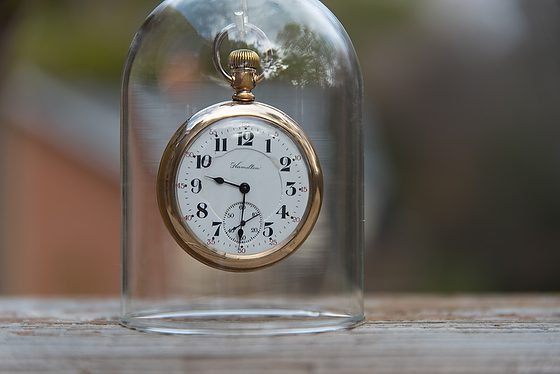
Now, when you take the Sigma 24-105mm f/4 DG OS HSM Art Lens and zoom to 105mm at the closest focusing distance, you fill the frame more with the subject and get a lovely BOKEH at ƒ/4.
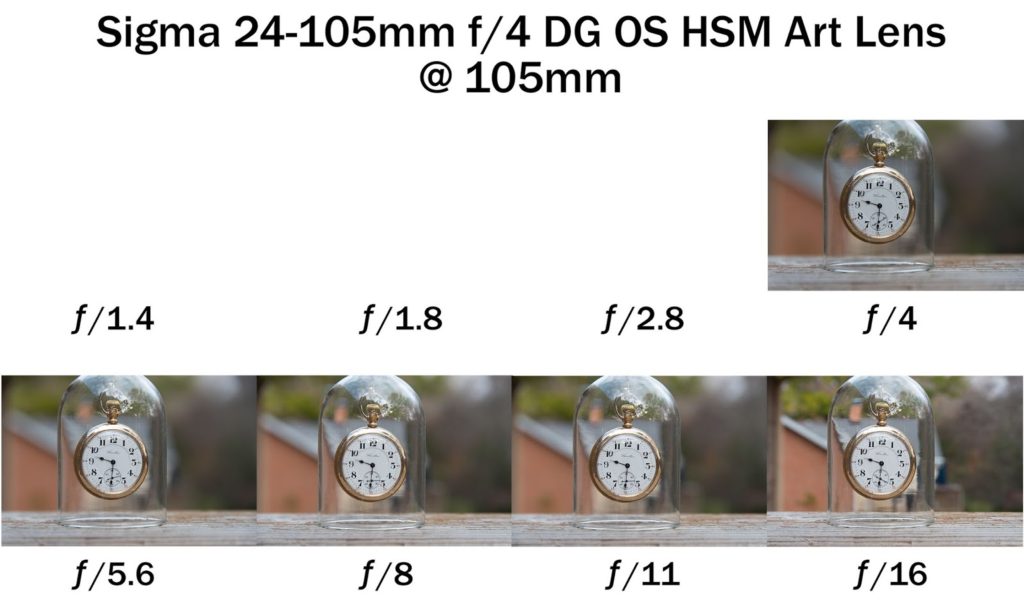
Conclusion
Know your lens. You should know what look your lens will give you with a subject at a certain distance and aperture before you shoot a job because you have taken the time to do something similar to what I have done here. I now have a baseline from which I have a pretty good idea of the look these three lenses give me at their closest focus distance with a subject.
The question is simple. Do you know what your lenses will give you before your next job?
